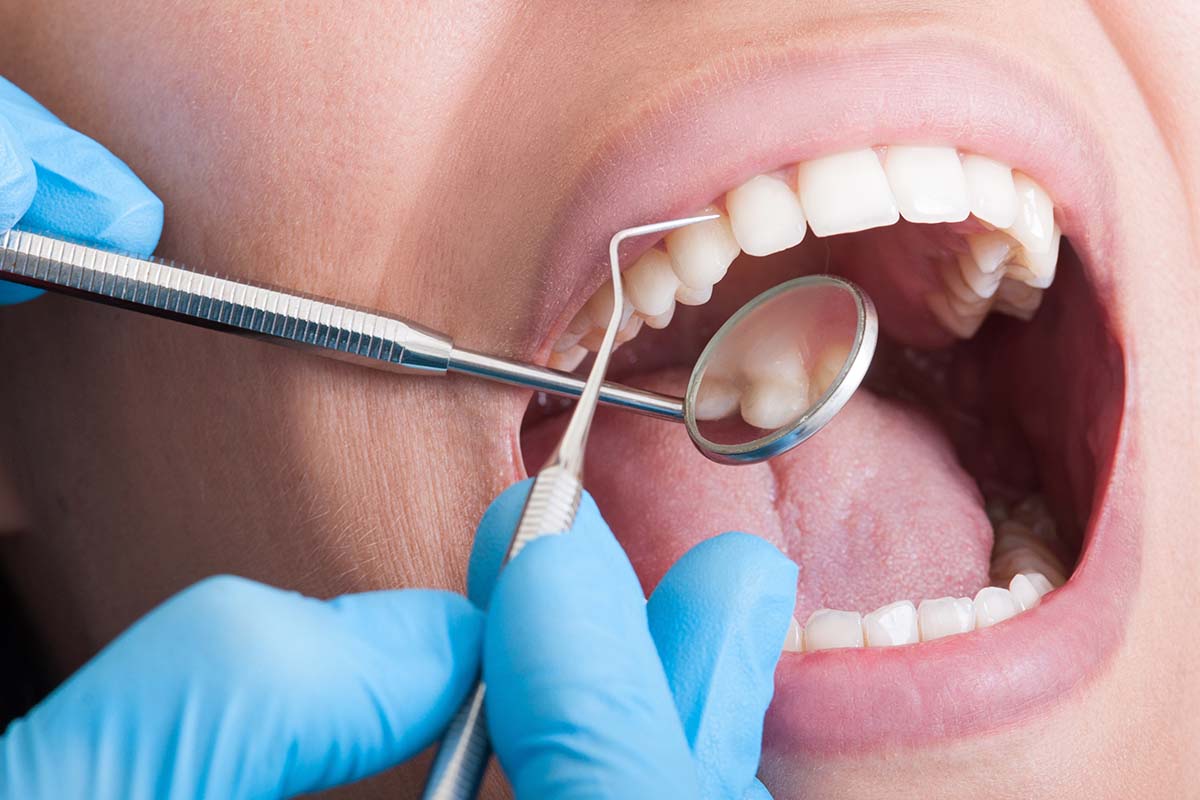One of the most common dental issues faced by individuals worldwide is dental cavities. These small holes or openings in the teeth, primarily caused by tooth decay, can lead to significant discomfort and further dental complications if not addressed promptly. In this article, we’ll delve deep into the world of tooth decay, understand its causes, and explore the expert solutions available to maintain a radiant smile.
The Science Behind Tooth Decay
Tooth decay is the softening of the tooth enamel caused by acids produced when plaque bacteria break down sugar in the mouth. If this loss of mineral from the enamel is left untreated, a cavity or hole in the tooth can eventually occur. Factors contributing to tooth decay include:
- Poor Oral Hygiene: Not brushing or flossing regularly allows plaque to build up and attack the tooth enamel.
- Dietary Habits: Frequent consumption of sugary and acidic foods and drinks can accelerate tooth decay.
- Lack of Fluoride: Fluoride helps prevent tooth decay by making teeth more resistant to acid attacks. A lack of fluoride treatment can increase the risk of cavities.

Signs and Symptoms of Dental Cavities
- Tooth Sensitivity: A sharp pain when consuming hot, cold, or sweet foods and drinks.
- Visible Holes: Small pits or holes in the affected tooth.
- Staining: Black, brown, or white staining on the tooth surface.
- Toothache: Spontaneous pain without any apparent cause.
Expert Solutions for Dental Cavities
At Casey Dental, we offer a range of treatments tailored to address dental cavities and ensure optimal oral health:
- Fillings: The most common treatment for cavities. The decayed material is removed, and the cavity is filled with a material like silver, composite resin, or gold.
- Crowns: For more severe decay, a custom-fit cap replaces the natural crown of the tooth after removing the decayed portion.
- Root Canals: If decay reaches the tooth’s pulp, a root canal may be necessary to remove the damaged pulp and seal the tooth.
- Tooth Extractions: In extreme cases where the tooth cannot be saved, it may need to be extracted.
Preventing Dental Cavities: The Role of Dental Care
Prevention is always better than cure, especially when it comes to dental health. Here are some expert tips to prevent dental cavities:
- Regular Dental Check-ups: Routine visits to the dentist, including professional dental cleanings, can help in early detection and treatment of cavities.
- Oral Hygiene: Brushing twice a day, flossing daily, and using an antiseptic mouthwash can keep plaque at bay.
- Dietary Choices: Limiting sugary snacks and drinks can reduce the risk of cavities. Drinking water after meals can also help wash out some of the sticky and acidic foods.
- Dental Sealants: A protective barrier applied to the chewing surfaces of back teeth, preventing cavities.

Dental Decay in Children: Prevention, Treatment, and Costs
Dental decay, especially in children, is a topic of concern for many parents. According to an article by Dr. Michael Dolynchuk, cavities are the most common chronic disease in children. Factors like children’s dietary habits, inadequate oral hygiene practices, and even bedtime routines play a significant role in the onset of dental decay.
Can Tooth Cavities Be Fixed?
Yes, tooth cavities can be fixed, and the earlier they are detected, the simpler the treatment. Basic fillings are the most common solution for cavities, and they are far less traumatic for a child than having complex dental treatment. If left untreated, cavities can progress, leading to more severe issues like Pulpectomies (baby tooth root canals), stainless-steel crowns, or even extractions. It’s crucial to catch a cavity early to prevent these complications. Regular check-ups, especially when parents notice any white, yellow, or brown staining on their child’s teeth, can help in early detection and treatment.
How Much Does It Cost to Fix Tooth Decay?
The cost of fixing tooth decay varies based on the severity of the decay and the required treatment. Basic fillings are generally more affordable than complex treatments like root canals or crowns. It’s essential to consult with a dental professional, like those Casey Dental, to get an accurate estimate based on individual needs. However, prevention is always more cost-effective than treatment. By instilling good oral hygiene habits in children from a young age, parents can save on potential dental bills in the future.
Understanding Cavities: Prevention and Misconceptions
Cavities, once formed, can pose a series of questions for many individuals. Two of the most commonly asked questions revolve around the progression of cavities and the possibility of them healing on their own. Let’s address these queries:
How Do You Stop Cavities from Spreading?
Stopping the progression of cavities is crucial to maintain oral health and prevent further dental complications. Here are some steps to halt the spread of cavities:
- Regular Dental Check-ups: Routine dental visits allow for the early detection and treatment of cavities, preventing them from worsening.
- Dental Fillings: Once a cavity is detected, getting it filled by a dentist is the most effective way to stop it from spreading.
- Fluoride Treatments: Fluoride can help remineralize enamel, potentially reversing the early stages of tooth decay. Regular fluoride treatments can be beneficial.
- Maintain Oral Hygiene: Brushing twice daily with fluoride toothpaste, flossing, and using an antiseptic mouthwash can remove plaque and prevent the formation of new cavities.
- Dietary Adjustments: Reducing the intake of sugary and acidic foods and drinks can decrease the risk of cavities.
Can Cavities Go Away on Their Own?
The simple answer is no. Once a cavity has formed, it cannot heal or reverse on its own. While the early stages of tooth decay can be halted or even potentially reversed with fluoride treatments and improved oral hygiene, a fully formed cavity requires professional dental intervention. If left untreated, cavities can lead to more severe dental issues, including infections, abscesses, and even tooth loss.
Conclusion: Prioritizing Dental Health for a Radiant Smile
Dental cavities, while common, can be effectively managed and prevented with the right care and attention. By understanding the causes of tooth decay and prioritizing dental care, individuals can enjoy a lifetime of healthy smiles. At Casey Dental, we’re committed to providing expert solutions for smiles, ensuring every patient receives the best in dental care.






